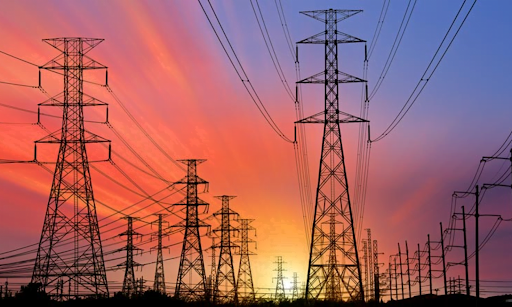When embarking on electrical projects in Dubai, one of the most critical aspects that contractors and developers face is obtaining necessary approvals from the Dubai Electricity and Water Authority (DEWA). DEWA approvals are crucial for ensuring that electrical installations are safe, compliant, and in line with the city’s regulations. Failing to meet these standards can result in costly delays, project setbacks, and even fines. In this article, we’ll explore best practices to help avoid such delays and ensure smooth project execution.
Understanding the Importance of DEWA Approvals
The role of DEWA in overseeing electrical installations in Dubai is essential for maintaining safety and efficiency across the city’s infrastructure. DEWA approvals ensure that the installation of electrical systems meets stringent safety standards. As these regulations are regularly updated to reflect advances in technology and safety concerns, keeping up-to-date is crucial. By planning properly and following compliance procedures, contractors can ensure that their projects meet the necessary DEWA standards without encountering unnecessary delays.
One of the first steps in avoiding delays is to engage with DEWA early in the planning stage. By doing so, project managers can get a clear understanding of the approval process, ensuring that all requirements are met from the outset. Whether you are managing a residential or commercial project, working with professionals experienced in DEWA approvals can streamline the process and minimize the risk of setbacks.
Common Mistakes that Lead to Delays
Many delays in electrical projects stem from common mistakes that can be easily avoided with proper planning and knowledge. One of the key issues is the failure to follow DEWA’s guidelines for electrical installations. Contractors may overlook specific requirements for wiring, grounding, or safety equipment, which results in failed inspections and project delays. Conducting thorough reviews of DEWA’s regulations can prevent these issues.
Another common cause of delays is poor documentation. For DEWA to grant approval, contractors must submit detailed drawings, specifications, and compliance reports. Incomplete or incorrect documentation can slow the process significantly, as it requires resubmission and re-inspection. Ensure all paperwork is completed with precision to avoid back-and-forth delays.
Additionally, some contractors attempt to cut corners by not using DEWA-approved materials or equipment, which leads to rejection at the inspection stage. Always use certified products that meet DEWA’s standards to ensure that your project is compliant.
DEWA Approved Electrical Services in Dubai
A major aspect of ensuring compliance and avoiding delays is working with experienced professionals who offer DEWA approved electrical services in Dubai. These experts are familiar with the intricate requirements and processes involved in obtaining DEWA approvals. Their in-depth knowledge helps to streamline the application and inspection processes, reducing the chances of delays.
From selecting the right materials to ensuring that your electrical system design meets the required standards, these services provide guidance throughout the project. Working with specialists who understand the nuances of DEWA’s regulatory framework can be the difference between a smooth approval process and one riddled with setbacks.
Beyond materials and design, DEWA-approved electrical services in Dubai often include inspections and pre-approvals that ensure the project is on track before the official DEWA inspection occurs. This added layer of precaution can catch potential problems early on and save time in the long run.
Best Practices for Avoiding Delays
To ensure your project doesn’t face unnecessary delays, follow these best practices:
- Early Planning and Consultation
Begin consulting with DEWA early in the project to understand their requirements. This allows you to identify potential challenges and address them before they cause delays. - Detailed Documentation
Ensure that all technical documents, including electrical designs and specifications, are accurate and complete before submitting them to DEWA. Mistakes in documentation can lead to rejection and the need for resubmission. - Certified Materials and Equipment
Always use DEWA-approved materials and equipment. Failure to do so could lead to failed inspections and significant project delays. - Regular Communication with Inspectors
Stay in regular contact with DEWA inspectors and engineers. Their feedback can help you make necessary adjustments early and ensure that your project meets compliance standards. - Pre-Inspection Reviews
Have your team conduct an internal review of the electrical installations before DEWA’s official inspection. This helps to catch any non-compliance issues early on and minimizes the chances of a failed inspection. - Hire DEWA-Approved Professionals
Working with professionals who have experience with DEWA approvals is one of the best ways to avoid delays. Their expertise ensures that your project remains on track, compliant, and on schedule.
The Importance of Electrical Replacements Service
Even after a project has been completed and DEWA approval has been granted, regular maintenance and electrical replacements service are necessary to keep systems running efficiently and in compliance with DEWA standards. Electrical systems naturally degrade over time, and outdated or worn-out components can pose a risk to safety and energy efficiency.
Scheduling regular inspections and replacements for key components ensures that your electrical systems continue to function properly and remain compliant with DEWA regulations. Whether it’s replacing outdated wiring, switches, or circuit breakers, a reliable electrical replacements service is crucial for long-term maintenance.
Failing to keep electrical systems up to date can result in failed inspections during future compliance checks, leading to disruptions in service and additional costs. By investing in regular maintenance, including electrical replacements service, you can ensure that your system stays compliant with DEWA’s evolving standards and avoid unexpected project delays.
Conclusion
Navigating the complexities of DEWA approvals for electrical projects in Dubai can be challenging, but by following these best practices, you can avoid unnecessary delays and keep your projects on schedule. Start planning early, engage with DEWA throughout the process, and ensure your materials, documentation, and installation practices are all in line with their standards. Whether you’re working on a new installation or need electrical replacements service, staying compliant with DEWA regulations is key to avoiding delays and ensuring the long-term success of your electrical projects in Dubai.

